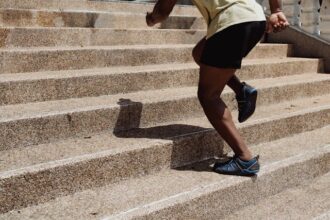While vigorous exercise close to bedtime is traditionally advised against, recent research from the University of Otago suggests that light, brief activities can enhance sleep quality. This groundbreaking study, showcased in the BMJ Open Sport & Exercise Medicine and backed by the Health Research Council, involved participants in two evening sessions. Each session lasted four hours, during which participants either sat continuously or had their sitting punctuated by three-minute activity breaks every half hour. The findings indicated a significant improvement in sleep duration—participants who engaged in these intermittent activity breaks slept an additional 30 minutes.
Jennifer Gale, a PhD candidate at the Department of Human Nutrition and the study’s lead author, highlights the well-documented risks of prolonged sitting. These include heightened chances of developing diabetes, cardiovascular diseases, and even premature death. Gale points out that many people’s typical evening routine involves extended periods of sitting, often exacerbated at home. Previous research by the team demonstrated that short bouts of exercise, lasting just two to three minutes every half hour, can notably decrease blood sugar and fat levels post-meal.
However, conventional sleep guidelines have consistently advised against engaging in prolonged or intense exercise before bedtime due to potential disruptions in sleep quality. The curiosity of the research team led by Gale and primary investigator Dr Meredith Peddie, Senior Lecturer in the Department of Human Nutrition, was piqued by what effects minimal yet repeated light exercises throughout the evening might have. The exercise regimen they tested included chair squats, calf raises, and standing knee raises with straight leg hip extensions—simple exercises that require no special equipment and can be performed in a small space without disrupting one’s evening leisure activities, like watching television.
Dr Peddie explains that these exercises were selected for their practicality and ease of integration into evening routines. The study suggests that even less structured physical activities, such as walking around the house, marching in place, or dancing, could yield similar benefits. The critical factor is regularly breaking up long periods of sitting with movement.
The significance of these findings extends beyond merely improving sleep duration. Insufficient sleep has been linked to adverse dietary habits and increased risks of heart disease and type 2 diabetes. While it is well-known that higher levels of daytime physical activity are associated with better sleep, current guidelines discourage strenuous exercise before bedtime as it can raise body temperature and heart rate, which may lead to poor sleep quality.
Dr Peddie advocates for reevaluating these guidelines based on their study’s results, suggesting that interrupting prolonged sitting with frequent, light-intensity exercise could be a viable public health strategy. This study challenges existing perceptions about evening physical activity and sleep and opens new avenues for enhancing health through manageable lifestyle adjustments.
More information: Jennifer T Gale et al, Evening regular activity breaks extend subsequent free-living sleep time in healthy adults: a randomised crossover trial, BMJ Open Sport & Exercise Medicine. DOI: 10.1136/bmjsem-2023-001774
Journal information: BMJ Open Sport & Exercise Medicine Provided by University of Otago








